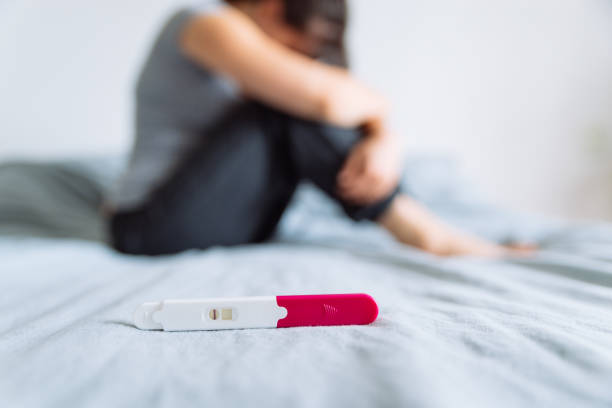Egg (Oocyte) and Ovulation Problems
Ageing
A woman’s age has an ever-increasing effect on her ovulation and will eventually stop her ovulating altogether when she reaches menopause. That usually occurs at about age 51 or 52 but before that a reasonably consistent level of fertility is maintained until, roughly, age 35. Between 35 and 40 fertility declines rapidly with the chance of a successful pregnancy being about two thirds lower at the end of this crucial 5 year period. A lot of this is to do with the quantity and quality of the eggs being produced. Women are born with 200,000 to 300,000 follicles each of which will contain an egg. Many will start to develop each month in the natural course of events after puberty but only one will mature and the rest of that month’s crop will perish. The cumulative effect of this is that the reserve of follicles remaining drops by half every 10 years. This doesn’t have much effect on fertility until after age 35 but by then there might be only about 10% of the original reserve remaining. Thereafter fertility drops in parallel with the drop in the follicle reserve. At menopause there are usually about 1000 eggs remaining even though ovulation ceases.
Premature Ovarian Failure
What if this ovarian ageing process starts earlier? Read more…
Irregular Ovulation
This can be caused by certain conditions as well as by advancing age. Without ovulation and its associated menstrual cycle, a follicle does not mature and produce an egg, and pregnancy is impossible. Fortunately these conditions can usually be corrected.
Polycystic Ovaries
Some 20% of all women are affected by this condition where the monthly cycle “stalls”. Read more…
Poor Quality Eggs
Age again, is the culprit here as genetic abnormalities within eggs are more prevalent with increased age. There are also certain inherited genetic conditions which can reduce fertility.
Ovarian Cysts
These can be ignored or treated with medication or surgery. For details…
Womb and Fallopian Tubes Issues
Blocked Tubes and Sterilisations
Fallopian Tubes carry the egg, then the embryo to the uterus. If they are blocked…
Chlamydia
Even if the infection is a thing of the past, an infection from Chlamydia can leave scarring in the fallopian tubes, stopping an egg moving freely into the uterine cavity. Pregnancies in this situation have a higher risk of being ectopic (growing in the fallopian tube).
Endometriosis
It is unproven whether endometriosis hinders fertility…
Uterine Wall Abnormalities
A new embryo has to implant and grow unhindered in the uterus. What happens if it can’t…
Fibroids
Growths in the uterus. Can they be ignored…
Infertility Caused By Medication
Medications required for chemotherapy, substance abuse or long-term use of common medications can all cause fertility problems. Visit our Infertility Caused by Medication page to find out more.
Immunological Infertility
Whether abnormal female immune functions can cause infertility remains controversial. So far, no treatment for immunological infertility has proven its value in properly conducted clinical trials. But we know that women with classical auto-immune diseases, such as rheumatoid arthritis also demonstrate a significant decline in fertility. In contrast to immunological infertility, immunological pregnancy loss can in many cases be successfully treated.
Hormonal Infertility
Polycystic Ovary Syndrome
Sometimes a woman’s ovaries produce too much Androgen, which can lead to PCOS. Read more…
Stress
Stress can cause hormonal fluctuations which can cause infertility through preventing ovulation. This stress can also be caused by being overweight (or underweight) or by a rapid change in weight.
Biochemistry
An underactive or overactive thyroid may cause ovulatory problems. Excess prolactin can be produced by the pituitary system, or there can be a luteal phase defect indicated by low progesterone levels.
Repeated miscarriage
When is repeated miscarriage classified as “recurrent”…
Lifestyle Factors
Some of these are described above, such as the hormonal problems that can be caused by stress and weight, and the effect of certain medications. Don’t underestimate the consequences of smoking or drinking too much alcohol and if you just need some help reducing your stress levels or changing your lifestyle, have a look at our Wellbeing pages.

